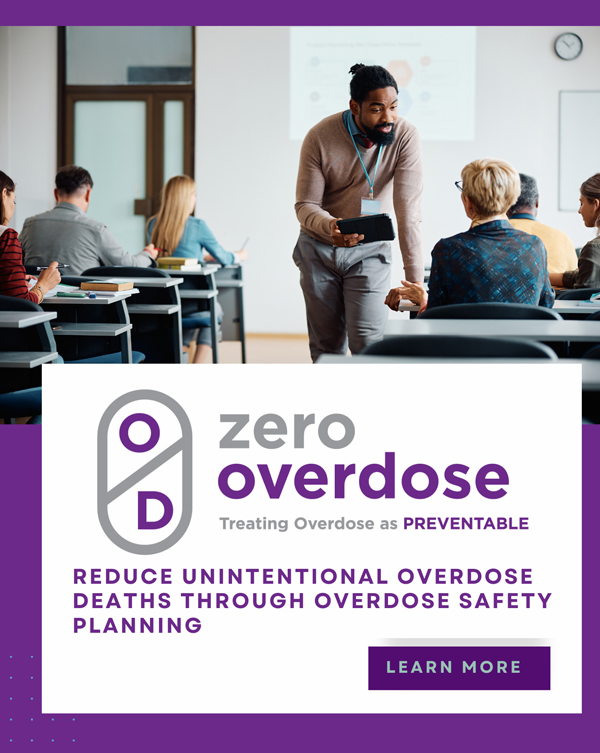The United States is grappling with an escalating public health crisis as overdose deaths continue to rise, and recent data underscores a distressing rise in opioid misuse and related overdose deaths among older adults. In NYC, there was a staggering 12% rise in overdose deaths in 2022 alone, marking the highest toll recorded since data collection began (NYC Health, 2023). Opioids, like fentanyl, were implicated in 85% of these fatalities. Among adults aged 55 to 64, the overdose rate reached 78.7 deaths per 100,000 residents, highlighting the acute vulnerability of this age group.

Data show a quadrupling of drug overdose fatalities among older adults over the past 20 years, surpassing increases seen in other age groups. These data also point to significant racial disparities, with elevated rates among non-Hispanic Black men and non-Hispanic Black women aged 65–74, having the highest drug overdose death rates in 2019 and 2020.
The increase in substance use disorders among older adults can be attributed to several factors, including prevalent prescription and misuse of opioids for chronic pain management and a certain degree of ageism, given that doctors often don’t screen for drug misuse or use disorder during appointments with older people because of stereotypical assumptions about drug use in that age group.
This rise can also be attributed, in part, to the widespread prescription and misuse of opioids in managing chronic pain among older populations. Studies indicate that approximately 15% of community-dwelling adults aged 50 and above have been prescribed opioids, with up to 35% reporting misuse.[1][2] Correspondingly, emergency department admissions related to opioid misuse among older adults have skyrocketed by an alarming 220%.[3]
With opioids at the forefront of this surge, it is crucial to develop comprehensive strategies that encompass prevention, treatment, and sustained support. Recognizing and adapting to the specific needs of older adults in an approach to substance misuse/use disorder prevention and treatment is essential.
Addressing these issues requires tailored public health strategies that consider the unique needs and challenges of the aging population, including better screening practices and targeted interventions that address both the medical and social needs of older adults. Additionally, the complex interplay of chronic pain management and opioid dependency underscores the critical need for targeted interventions tailored to older adults. Zero Overdose addresses these challenges through its innovative Overdose Safety Plan©.
Overdose safety planning is a proactive approach designed to reduce the risks associated with drug and prescription medication use, particularly for individuals vulnerable to overdose. This strategy involves creating a personalized safety plan that includes considering overdose risks and ways to mitigate them, recognizing the signs of overdose, knowing how to respond effectively, and ensuring that resources like naloxone (an opioid overdose reversal medication) are readily available.
Central to this initiative is the destigmatization of substance use within older adult communities, fostering open dialogue and support mechanisms. Overdose safety planning should be offered to all individuals at risk of overdose, including older adults receiving a prescription for opioids. By equipping healthcare providers, caregivers, and community leaders with essential training and resources, Zero Overdose empowers primary providers and frontline responders to partner with their patients on overdose risk mitigation, recognize early signs of opioid misuse, understand the unique risks faced by older adults, and implement effective prevention strategies.
The effectiveness of overdose safety planning hinges on its comprehensive nature—it not only equips individuals with the tools and knowledge to handle potential overdoses but also engages them in managing their own health more actively. This may include regular monitoring for signs of increased overdose risk, such as changes in tolerance, periods of abstinence or reduced use, and use of multiple substances. By involving healthcare providers, family members, or friends in the planning process, the approach fosters a supportive environment that can significantly enhance the safety and well-being of individuals at risk.
The work of Zero Overdose highlights a crucial and growing need within public health responses—tailored interventions that address the specific challenges faced by older adults struggling with substance use disorders. By fostering community engagement, enhancing healthcare provider education, and implementing strategic overdose prevention initiatives, Zero Overdose is not only mitigating the immediate crisis but also paving the way for more resilient urban communities. As this group continues to grow, the need for such specialized and compassionate approaches will only increase, underscoring the importance of sustained effort and innovation in tackling the overdose epidemic among the elderly.
Looking ahead, Zero Overdose remains committed to expanding its impact through innovative partnerships and program enhancements. By continually adapting to the evolving needs of older adults in the opioid crisis, Zero Overdose not only saves lives but also cultivates a more informed and resilient community.
Thomas McCarry, LMHC, is CEO/Co-Founder and can be reached at tmccarry@zerooverdose.org; Julian Mitton, MD/MPH, is Medical Director and can be reached at jmitton@zerooverdose.org; Jorge Petit, MD, is Strategy and Development Advisor at Zero Overdose and can be reached at jpetit@zerooverdose.org.
For more information about our Overdose Safety Planning Specialist Training or how to support or get involved with Zero Overdose, please visit zerooverdose.org or reach out to us at info@zerooverdose.org and help make a difference in the lives of many.







